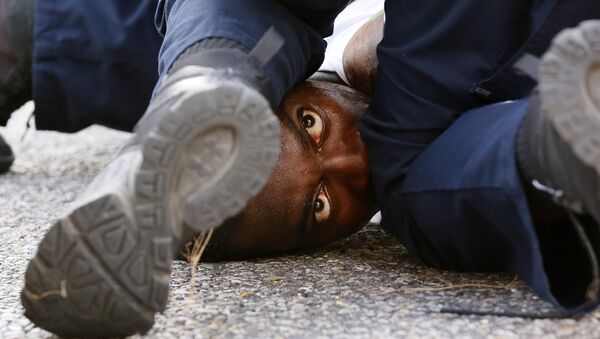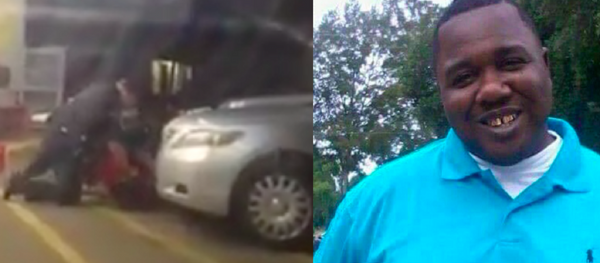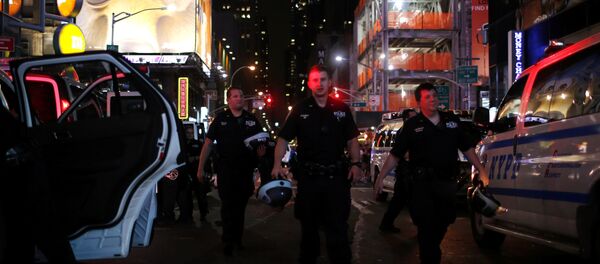On July 5, Sterling, 37, was selling bootleg compact discs and DVDs outside a local convenience store with the owner’s permission. Police maintain that a call was placed to local law enforcement reporting a man threatening people with a gun. After police arrived a scuffle ensued. Sterling was pinned face down by police officers and shot multiple times in the back and chest as he was being detained.
His killing was recorded on video by a witness, and, following the posting of the recording, protesters spilled into the streets to demand justice.
In the course of the protest arrests in the wake of Sterling’s death, reports claimed that, "During the protest, the Defendant entered the roadway and was provided another verbal order to exit the lanes of travel. After being advised that they were under arrest, the Defendant did actively attempt to prevent being taken into custody," read an affidavit of probable cause, which, The Advocate reports, is identical to the text of 34 other affidavits.
A slightly modified version of the same statement is used in 98 additional affidavits, with only the names changed. The copied reports, signed by a judge, show the same incident location and time, but the arrests happened at many different places and at many different times.
"Probable cause requires not just the sense that a defendant may have committed a crime, but that this particular defendant at a particular time and place committed a particular crime," Scott Sullivan, an LSU law professor who teaches criminal procedure told The Advocate.
"What seems to be missing is a careful consideration of this particular defendant's actions," he said. "That sense (that a crime was committed) is undermined when you just see a repeated narrative over and over again without much deviation."
The Baton Rouge Police Department claims that the copied and pasted affidavits are fine as they are just meant as brief descriptions. They maintain that they have more detailed arrest reports for each protester, but that those will not be made public.
"(Police) were basically bending the rules to affect what they believed to be crowd control. They weren't really making legitimate arrests based on individualized probable cause," John DiGiulio, a criminal defense attorney in Baton Rouge told The Advocate. "I think there's a pretty good case to be made that they were just bending rules and doing a roundup."




